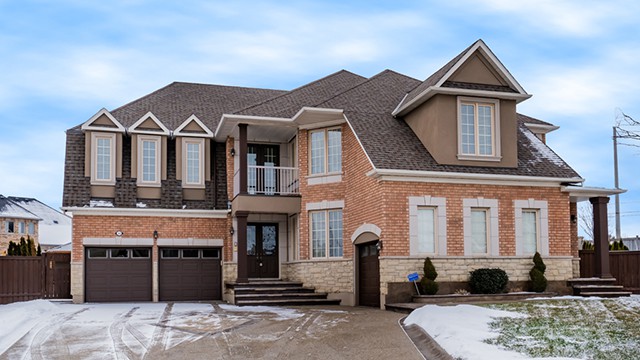Ontario Government Introduces Measures to Curb Housing Market Prices
Published April 20, 2017 at 4:13 pm

Brampton renters and those looking to buy a home, not just in this city but across Ontario, knew that the interventionalist provincial government led by Kathleen Wynne, who has not been shy about using the power of government to take measures in the economy, was looking to do something about the skyrocketing costs of living in this province. And those measures have arrived.
Brampton renters and those looking to buy a home, not just in this city but across Ontario, knew that the interventionalist provincial government led by Kathleen Wynne, who has not been shy about using the power of government to take measures in the economy, was looking to do something about the skyrocketing costs of living in this province. And those measures have arrived.
This morning, Premier Wynne made her announcement amidst a backdrop in Liberty Village in downtown Toronto, the epicentre of some of the highest rents in the GTA. The government will introduce 16 measures they hope will start cooling down the red hot housing market.
Some of the measures introduced today include the following:
-
A 15 per cent tax on home purchases by non-resident foreigners in Toronto and the Greater Golden Horseshoe. Wynne said the tax would not apply to new immigrants who plan to live here, but speculators who will “never set foot in Ontario.” The proposed tax would apply to transfers of land that contain at least one and not more than six single-family residences, including semi-detached homes, townhomes and condos. It would not apply to transfers of other types of land including multi-residential rental apartment buildings, agricultural land or commercial/industrial land. A rebate would be available for those who later become citizens or permanent residents, as a well as foreign nationals working in Ontario and international students.
-
Expanded rent control that will apply to all private rental units in Ontario, including those built after 1991, which are currently excluded. The rent increases must come through approved legislation, but will take effect today, April 20. Currently in Ontario, increases are capped at a maximum of 2.5 per cent.
-
A rebate of development cost charges to encourage building of more rental housing.
-
A standardized lease document for all tenants.
-
A ban on flipping of pre-construction units by speculators, a group Finance Minister Charles Sousa has called “property scalpers.”
-
New powers for Toronto and other municipalities to introduce a tax on vacant homes to encourage owners to sell or rent unoccupied units.
-
A move to identify provincially owned surplus lands that could be used for affordable and rental housing development.
-
A $125-million, five-year program to encourage the construction of new purpose-built rental apartment buildings by rebating a portion of development charges.
-
A review of the rules real estate agents are required to follow to ensure that consumers are fairly represented in real estate transactions. A government backgrounder on the measures announced today specifically mentions the practice of double-ending, when one agent represents more than one party in a transaction.
“When young people can’t afford their own apartment or can’t imagine ever owning their own home, we know we have a problem,” Premier Wynne said. “And when the rising cost of housing is making more and more people insecure about their future, and about their quality of life in Ontario, we know we have to act.”
The 15 per cent tax on foreign buyers was something modeled along what British Columbia recently brought in in response to the rapidly skyrocketing prices in Vancouver, on speculation that it was because a number of Chinese nationals were purchasing property and just letting them sit vacant for months on end.
As for rent controls, there is much discussion and debate on that policy and whether it actually works. Rent controls means the government has effectively entered the housing market, and those of you out there who preach the virtues of the free market economy might be aghast at Wynne’s expansion of rent controls today.
If you’re a renter fearful of major increases, the news might prompt you to breathe a sigh of relief.
Another interesting point to note is the allowance of municipalities to introduce a tax on vacant homes, in order to sell or rent out unoccupied units. What exactly is an “empty” home? Vancouver’s law, for example, excludes a person’s principal residence, so anyone who wants to leave her house vacant while wintering in Arizona wouldn’t be affected.
There are other big exemptions, such as one for those awaiting permits to renovate their homes. Taking them out of the equation quickly cuts the number of empty homes liable for tax. Any city council, Brampton’s included, would be prickly about the idea of introducing a new tax, especially when an election is coming up next year in 2018.
Let’s not forget that Wynne herself is facing dismal approval ratings, so she wants to be seen doing something to shore up her political fortunes in time for next year’s provincial election.
So for Brampton renters and potential homeowners today’s announcement may sound like a relief, but whether these measures will actually cool down the housing market remain to be seen (especially since some experts argue supply issues, not foreign investment, are driving price increases), or whether this was just political theatre on display once again.
Follow me on Twitter at @thekantastic
INsauga's Editorial Standards and Policies








